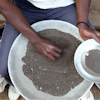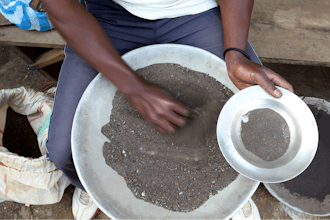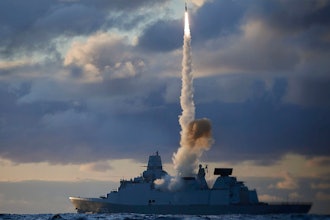MANILA, Philippines (AP) — Asia and the Pacific, home to two-thirds of the world's one billion hungry people, need increased investment in agriculture of $120 billion a year for the next 40 years to contain hunger and future spikes in food prices, United Nations and Asian Development Bank officials said Wednesday.
They said agricultural investments in the region, currently at $80 billion, will need to rise by 50 percent to $120 billion yearly until 2050 — when world population is expected to swell to 9.1 billion from the today's 6.5 billion. The onus for funding the investments would be on private sources and governments.
ADB President Haruhiko Kuroda said Asia's economies are rebounding strongly from global economic and food price crises of 2007-2009 and prices have stabilized. But they remain 85 percent higher than 2003 levels and are expected to jump by 15 to 40 percent until 2019.
People with rising incomes will also demand diversified food choices, adding strain to the region's already stretched agricultural resources, he said.
"These statistics belie a crisis that will only get worse in the years to come unless immediate action is taken," Kuroda said. "Add to this rapid population growth, climate change and water shortages, and the need for action is blindingly apparent."
He said ADB has committed $2 billion a year for its food security plan for the region, focusing on boosting productivity, agricultural research, and the food supply chain.
Jacques Diouf, director general of the UN's Food and Agriculture Organization, said there were 1 billion hungry people in the world in 2009, or 100 million more than in 2008. In Asia-Pacific alone, the ranks of the undernourished rose by over 60 million in 2009 to 642 million.
"The sheer magnitude of food insecurity is the result of the low priority that has been given to agriculture in economic development policies as shown by the drop in the share of agriculture in Official Development Assistance, from 19 percent in 1980 to about 5 percent today," Diouf said a video address.
FAO estimates that world food production must rise by 70 percent by 2050.
Kanayo Nwanze, president of the International Fund for Agricultural Development, said long-term agricultural productivity growth is imperative for food security. He called for expanding small farmers' production and access to markets, and boosting agricultural research, crop management and rural infrastructure.
James Bolger, a former prime minister of New Zealand who now heads the advisory council of the World Agricultural Forum, called for bold measures and political will to be able to feed the world's hungry, saying it is often not a matter of money but priority.
Bolger said strategies are needed for beneficial use of land and water, and to move consumption from those who consume too much to those who must consume more.
Hiroyuki Konuma, FAO's assistant director general, told reporters several developing countries were expected to present at the three-day forum their draft national investment plans to attract agricultural investors.






















